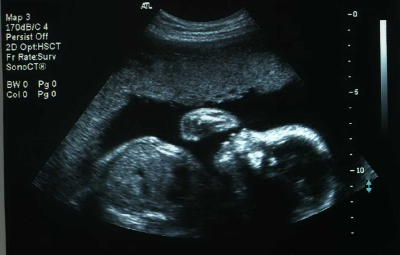Your Baby Development: 5 Weeks Old
How big is your baby? This week your baby will be weighing around 91/4 pounds and measuring 211/4 inches if he/she was of average size at birth. At about this time your baby may begin to recognize your face and voice. He/She may open and close his/her mouth or bob his/her head when you talk. He/She may even respond to voices with his/her own sounds in response as he/she begins to connect to what is heard and seen. When your baby is supported he/she can hold his/her head steady for a brief period of time, even if it still a little wobbly. Baby can also probably lift his/her head for a brief period when lying on his/her stomach. To help develop and strengthen the neck muscles, place baby on his/her tummy in many different positions throughout the day when awake, both on the back and tummy. Your baby will also begin to manually grasps and release objects such as your finger and if his/her hand finds its way to his/her mouth then he/she will begin sucking and mouthing the fingers or fist. You may also notice that he/she is starting to stretch out and not spend as much time in the fetal position. He/She may arch his/her back and throw out his/her arms and legs, and even twist from side to side. You baby can now see clearly from 18 inches, but doesn’t have much control over his/her muscles, so at this stage he/she can at best wave an arm in the direction of what he/she sees.Baby Development Milestones This Week
Physical Development
- Actions become more voluntary and reflexes begin to disappear
- May bat or push at objects
- More easily calmed by a female voice
Mental & Social Development
- Memory for objects continues to grow in strength
- Can quiet him/herself by sucking on pacifier or fingers
- Quiets when held or sees faces and voices
- Prefers to watch person than an object
- Place a rubber mat on the bottom of the tub so that your baby will not slip
- Have your “baby bathing tools”, such as shampoo and soap with in easy reach
- You may want to wear cotton gloves to ensure that you have a good grip on him/her.
- Make sure the bathroom is warm, but not too hot. Around 75F 23.8C is usually good.
- When placing baby into the tub, let his/her feet go in first. If he/she objects, remove him/her immediately.
- Support his/her head while you wash him/her
- Don’t stay in the water too long
- Keep the temperature of your water heater below 120F (48.8C) to prevent accidental scalding
- Take baby out of the tub first, wrapping him/her in a towel to your partner before you get out.
- NEVER leave baby unattended in the tub!
- Baby’s coloring becomes grayish
- His/Her mucus membranes become dry
- Urination decreases. (Your baby should have 6-8 wet diapers per day)
- Sunken Fontanel (Soft part on top of the head)
- Rapid pulse
- Appears to be sluggish
- Keep your baby out of the sun.
- Ensure he/she drinks plenty of fluids
- Dress baby appropriately for the weather.
- Baby hasn’t had a wet diaper in 6-8 hours
- has been vomiting for more than 12 hours
- Has passed more than eight diarrhea stools in 8 hours
- Has a dry mouth and cries without tears
- is inconsolable
- seems unusually drowsy or sleepy
- has a sunken fontanel
Baby may be sleeping for as long as 7 hours a night by this time, if he/she weighs at least 11 pounds and has no digestive problems.
Baby Week5


